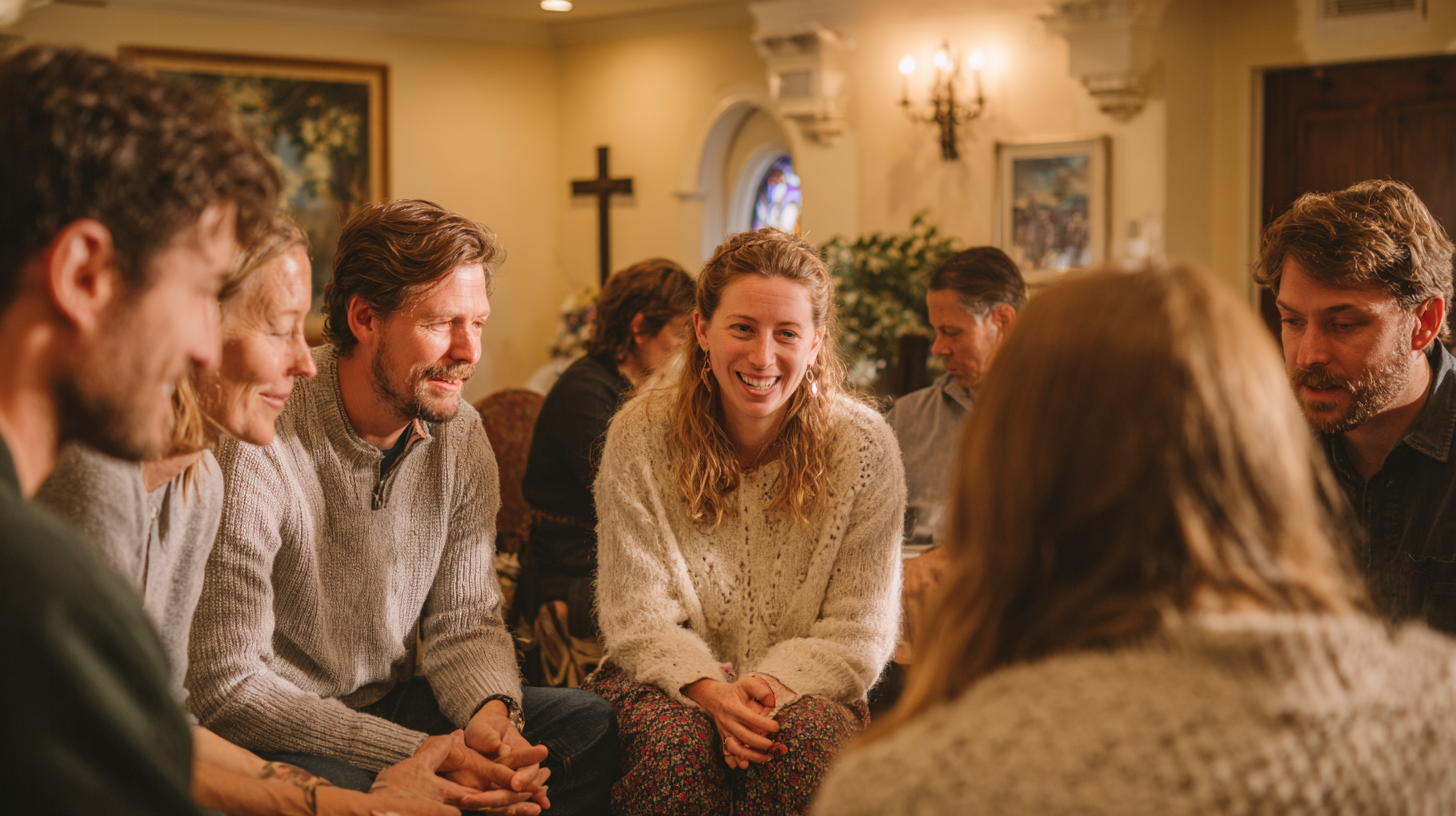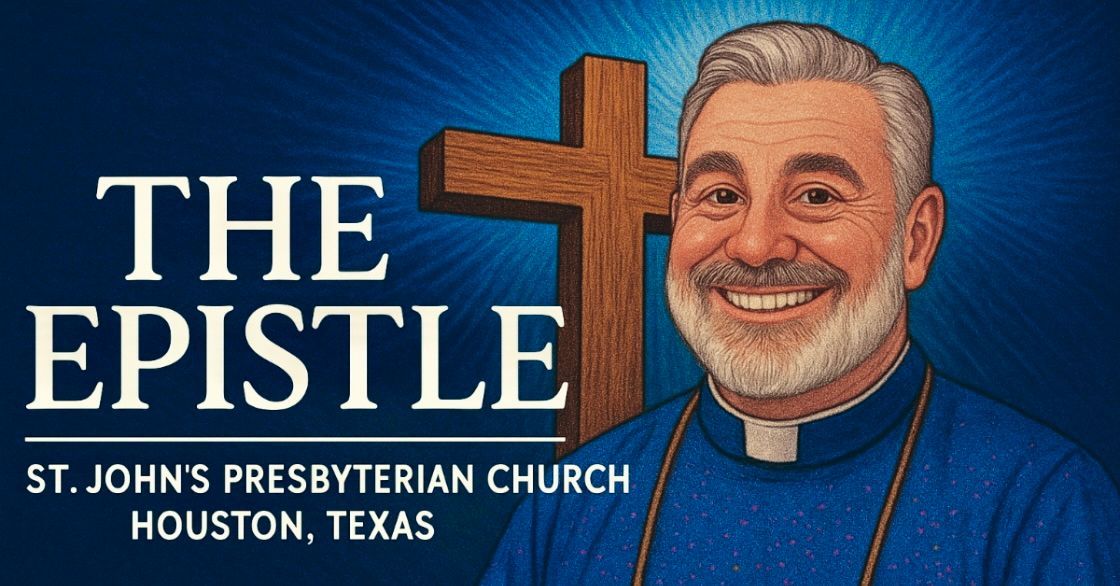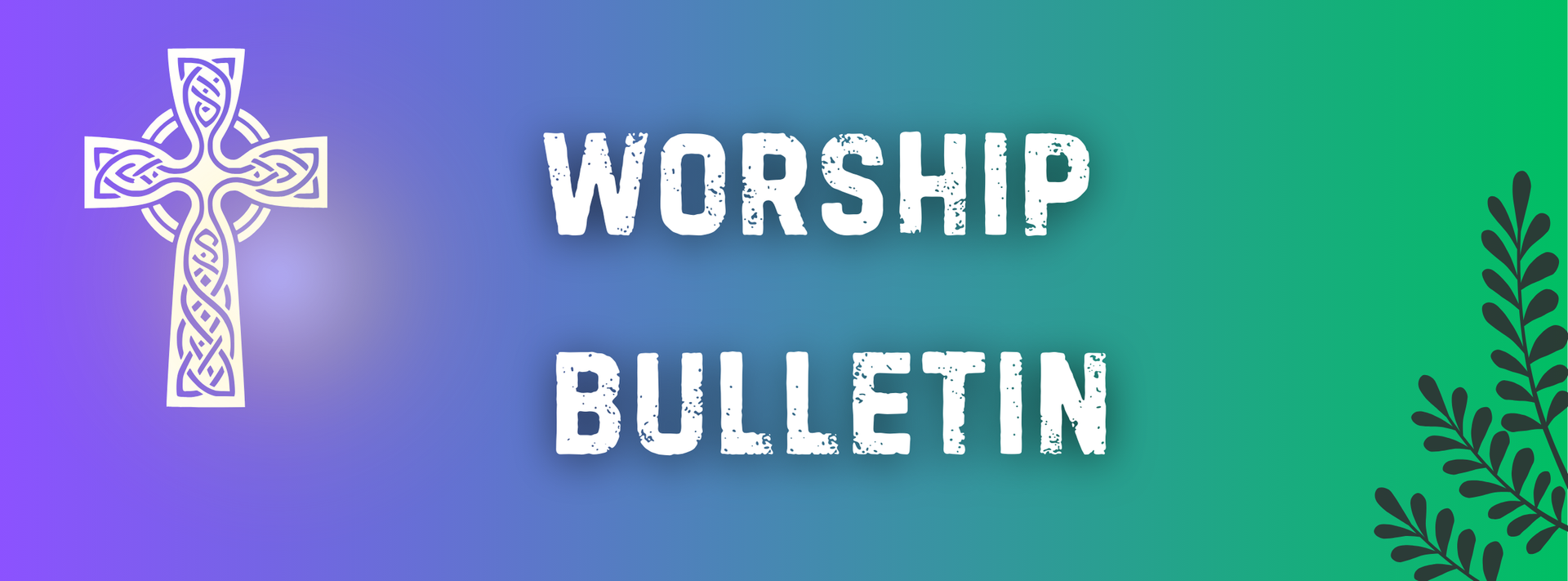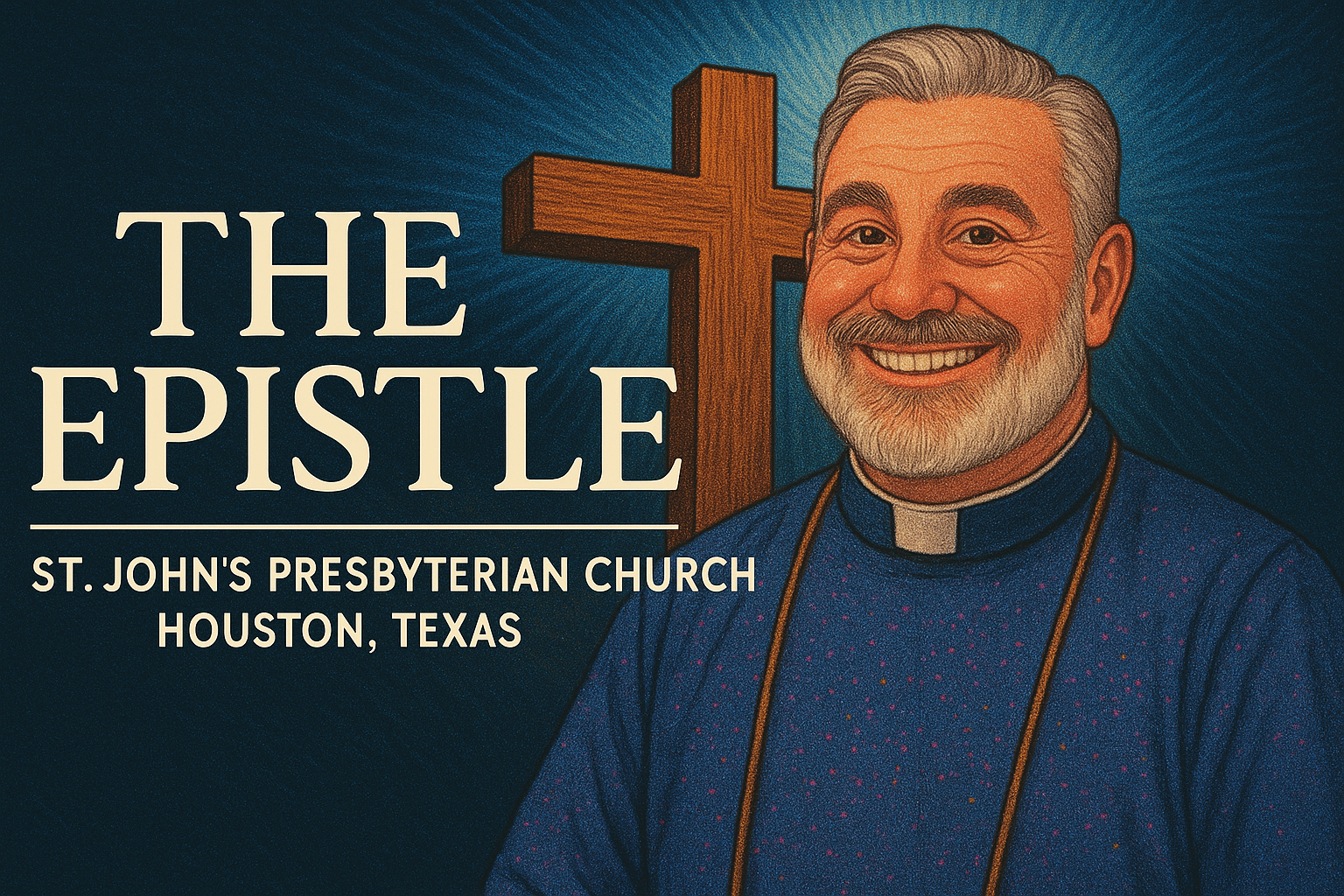Christian Perspectives on Healthy Relationships in Houston
Relationship Advice in Houston TX:
Building Stronger Bonds Through Faith
You know that moment when you're driving on 610 and someone cuts you off without signaling? In that split second, you become judge, jury, and... well, let's just say your verdict isn't charitable. "What an idiot!" flies out before you can catch it. Maybe you add a few choice observations about their driving skills, their upbringing, or their general contribution to society.
Then, about three exits later, you realize you need to change lanes quickly. You dart over. No signal. Someone honks. And suddenly you remember: you had a good reason. You almost missed your exit. You were distracted thinking about that meeting, that medical test, that conversation with your teenager.
Funny how quickly we go from judge to defendant, isn't it?
Welcome to the human condition. Welcome to what Jesus knew about us all along.
The Plank and the Speck
This morning we're diving into Matthew chapter 7, where Jesus delivers one of His most memorable images. Picture this: you're walking around with a two-by-four sticking out of your eye, and you tap your neighbor on the shoulder. "Hey buddy, hold still. You've got a speck of sawdust in there. Let me get that for you."
Jesus wasn't known for slapstick comedy, but this image? Pure genius. Everyone laughs because everyone recognizes themselves. We're all amateur ophthalmologists when it comes to other people's problems.
"Do not judge," Jesus says, "or you too will be judged. For in the same way you judge others, you will be judged, and with the measure you use, it will be measured to you."
Now hold on. Is Jesus telling us never to evaluate anything? Never to call out genuine wrongdoing? Some people read it that way, but that's not what's happening here. Jesus Himself made plenty of judgments. He called out hypocrisy. He overturned tables in the temple. He didn't mince words with religious leaders who were hurting people.
No, Jesus is talking about something deeper. He's talking about the peculiar blindness we have to our own faults while maintaining 20/20 vision for everyone else's. He's talking about the kind of judgment that writes people off, that assumes we know their whole story, that elevates us while diminishing them.
The Micah Standard
Let's bring in the prophet Micah for a moment. Our liturgist read those powerful words: "He has shown you, O mortal, what is good. And what does the LORD require of you? To act justly and to love mercy and to walk humbly with your God."
Three things. Not three hundred. Not a complex theological treatise. Three things that a child could understand but that take a lifetime to master.
Act justly. Love mercy. Walk humbly.
Notice the progression? Justice without mercy becomes harsh. Mercy without justice becomes enabling. But both without humility? That's where things really go sideways. That's when we become the very Pharisees Jesus was warning about.
Humility is the secret ingredient that makes everything else work. It's what allows us to act justly without becoming self-righteous. It's what allows us to love mercy without becoming doormats. It's what keeps us walking with God instead of strutting ahead like we know the way.
The Relationship Economy
Here's what I've learned after years of ministry, years of marriage, years of just being human: relationships are the real currency of the Kingdom of God. Not money, though we need to steward that. Not talents, though God gives those too. Relationships. The messy, beautiful, complicated connections between human beings who are all walking around with planks in their eyes, all desperate to be seen and known and loved anyway.
Every Sunday, you walk into this sanctuary carrying relationships. The marriage that's harder than you thought it would be. The friendship that went south over politics. The adult child who won't return your calls. The coworker who takes credit for your ideas. The neighbor whose dog won't stop barking at 3 AM.
And here's the thing: God cares about every single one of those relationships. Not just your relationship with Him, though that's primary. He cares about how you treat the barista who messed up your order. He cares about how you respond to that family member who always pushes your buttons at Thanksgiving dinner.
Why? Because we're not just blessed to be blessed. Say it with me: "We are blessed to bless; we receive to give."
The mercy we receive from God isn't meant to pool up in our hearts like standing water. It's meant to flow through us to others. The grace that covers our planks is the same grace we're called to extend to others' specks.
The Houston Test
Living in Houston gives us a unique laboratory for this kind of kingdom stewardship. We're one of the most diverse cities on the planet. You can drive down Hillcroft and hear seventeen languages in ten blocks. Your kids go to school with children from every continent. Your workplace looks like a United Nations meeting.
This diversity is a gift, but let's be honest: it's also a challenge. More differences mean more opportunities for judgment. More chances to assume we know someone's story based on their accent, their clothes, their politics, their denomination.
I met a man at the grocery store last week. Middle Eastern accent, buying ingredients I didn't recognize. Ten years ago, I might have made assumptions. Might have kept my distance. But Kingdom stewardship of relationships means seeing past surface differences to the image of God underneath.
Turns out he was shopping for a church potluck. His congregation was hosting a meal for homeless veterans. The ingredients I didn't recognize? His grandmother's recipe that he was adapting to feed two hundred people.
How many relationships do we miss because we judge too quickly? How many potential brothers and sisters in Christ do we write off because they don't fit our predetermined categories?
The Forgiveness Project
Let me tell you about Tom and Sandra. Real couple, different names. They'd been married twenty-three years when they walked into my office. They weren't speaking to each other, just to me, like I was serving as translator for two people who'd forgotten they spoke the same language.
The presenting issue was money. Tom had made a significant financial decision without consulting Sandra. But as we talked, layers peeled back. Sandra had her own secret credit card debt. Tom felt dismissed and disrespected. Sandra felt invisible and unvalued.
Twenty-three years of accumulated specks and planks. Twenty-three years of keeping score.
"What does God require?" I asked them, pulling out Micah. "Justice, mercy, and humility."
Tom wanted justice. Sandra had wronged him.
Sandra wanted justice. Tom had wronged her.
Both were right. Both had been wronged. But justice alone wouldn't heal their marriage. They needed mercy, that supernatural ability to give what isn't deserved. And they needed humility, the recognition that they were both broken people in need of grace.
It took months. There were setbacks. Old patterns die hard. But slowly, they began to practice kingdom stewardship with their relationship. They started seeing their marriage not as something they owned but as something they stewarded for God's glory.
Last month, they renewed their vows. Twenty-five years. Not perfect, but pursuing. Not arriving, but traveling together.
The Practical Path
So how do we actually do this? How do we steward our relationships with kingdom priorities? Let me give you some practical steps, not a neat list of three, but a handful of practices that can transform how we relate to others.
First, start with the plank. Before you evaluate anyone else today, take five minutes for self-examination. What are you blind to? What criticism do you level at others that might actually apply to you? This isn't about self-flagellation. It's about honest recognition of our shared brokenness.
Second, practice the pause. When someone irritates you, when you feel judgment rising, pause. Take a breath. Ask yourself: What might be happening in their life that I don't know about? That person who was rude at the store might have just received a diagnosis. That aggressive driver might be rushing to the hospital. You don't know. That pause creates space for mercy.
Third, apologize specifically. Not "I'm sorry if I hurt you." That's not an apology. That's a deflection. Try this: "I'm sorry I raised my voice. That was wrong. Will you forgive me?" Specific acknowledgment of specific wrongs. This is what humility looks like in practice.
Fourth, extend grace preemptively. Instead of waiting for people to earn your kindness, give it freely. This is what God did for us, right? "While we were still sinners, Christ died for us." We didn't clean up first. Grace came first.
Fifth, invest in restoration. Some relationships are broken. Maybe they've been broken for years. Kingdom stewardship means being willing to take the first step toward healing, even if you weren't the primary one at fault. Especially if you weren't the primary one at fault. That's when mercy shines brightest.
The Church as Relationship Laboratory
Here's what I love about the local church: it forces us into relationships we wouldn't choose. Left to our own devices, we'd surround ourselves with people who think like us, vote like us, look like us. But the church? The church throws together the oil executive and the environmental activist, the teenager and the retiree, the immigrant and the seventh-generation Texan.
And we're supposed to love each other. Not just tolerate. Not just coexist. Love.
This is the genius of God's design. The church becomes a laboratory for kingdom relationships. We practice on each other. We fail with each other. We forgive each other. We try again.
I've watched it happen right here at St. John's. The conservative grandfather and the progressive granddaughter, serving side by side at the food pantry. The divorced woman and the happily married couple, supporting each other through loss. The recovering addict and the teetotaler, sharing communion.
These relationships don't happen automatically. They require intentional stewardship. They require us to act justly when we see wrong, to love mercy when people fail, and to walk humbly knowing we're all in process.
The Thanksgiving Table Test
In two weeks, many of you will sit around Thanksgiving tables with extended family. This is where the rubber meets the road. Can you practice kingdom stewardship of relationships with Uncle Frank who won't stop talking about politics? With your sister who makes passive-aggressive comments about your parenting? With your mother-in-law who still thinks you're not good enough for her baby?
Here's my challenge: pick one relationship at that table to steward differently this year. Just one. Maybe it's the person you usually avoid. Maybe it's the one you typically argue with. What would it look like to approach them with justice, mercy, and humility?
Justice might mean having an honest conversation about a hurt that needs addressing. But do it with mercy, recognizing their humanity and struggles. And do it with humility, acknowledging your own contribution to the dysfunction.
Or maybe this year, justice means letting something go. Maybe mercy means choosing not to take the bait when they cast the line. Maybe humility means admitting, at least to yourself, that you've been part of the problem.
The Divine Interruption
Here's what strikes me most about Jesus' teaching on judgment: He knows we're going to fail at this. He knows we're going to judge others while blind to our own faults. He knows we're going to choose justice without mercy, or mercy without justice, or neither with humility.
That's why the Gospel is good news. It's not a self-improvement program where we gradually get better at relationships through our own effort. It's a divine interruption where God's grace transforms us from the inside out, making us capable of loving in ways we never could on our own.
When you really grasp the mercy you've received, when you really understand the plank that God removed from your eye, extending grace to others becomes less of a duty and more of an overflow. You're not trying to be merciful. Mercy is flowing through you because you're connected to its source.
This is kingdom stewardship of relationships: recognizing that every human connection is an opportunity to display God's character. Every conflict is a chance to show what reconciliation looks like. Every hurt is an invitation to demonstrate supernatural forgiveness.
The Mission Continues
We don't steward relationships just for our own benefit. This isn't spiritual self-help. We steward relationships because the watching world needs to see what kingdom community looks like.
People in Houston are lonely. They're disconnected. They have five hundred Facebook friends but no one to call at 2 AM when life falls apart. They're surrounded by millions of people but feel invisible.
When we steward our relationships with kingdom values, we become living advertisements for a different way of being human. We show that conflict doesn't have to end in destruction. We demonstrate that differences don't have to divide. We prove that grace is real and transformation is possible.
This is missional living. Not just inviting people to church, though please do that. But showing them what church looks like Monday through Saturday. Showing them what happens when regular people commit to extraordinary love.
The Invitation
So here's my invitation as we close: take inventory of your relationships. Not all of them. That would be overwhelming. Just the top five. The ones that take up the most emotional real estate in your life.
How are you stewarding them? Are you acting justly, addressing wrongs that need addressing? Are you loving mercy, extending grace even when it's not deserved? Are you walking humbly, recognizing your own need for forgiveness?
Where there's brokenness, what would restoration require? Where there's distance, what would drawing closer look like? Where there's judgment, what would mercy feel like?
Remember: with the measure you use, it will be measured to you. But also remember: the God who measures is the same God who sent His Son to remove every plank, to forgive every sin, to restore every relationship that sin has broken.
You are blessed to bless. You receive to give. The mercy flowing to you is meant to flow through you. The grace that covers you is meant to spill over onto others.
This is kingdom stewardship of relationships. This is what makes the church different from any other organization on earth. This is what the watching world needs to see.
And this is what we're inviting you into here at St. John's. Not perfect relationships. We don't have those. But purposeful ones. Not relationships without conflict, but relationships where conflict leads to deeper connection. Not relationships without hurt, but relationships where hurt gets healed.
Come as you are, plank and all. But don't plan to stay that way. God's got some surgery to do, some mercy to distribute, some relationships to restore. And He wants to do it through a community of people who are learning to act justly, love mercy, and walk humbly together.
That's the invitation. That's the mission. That's the joy of kingdom stewardship.
We are blessed to bless. We receive to give.
Let's Pray
Merciful God, we confess that we have been harsh judges and poor forgivers. We have noticed every speck while ignoring our planks. We have demanded justice for others while pleading mercy for ourselves. Forgive our hypocrisy. Forgive our broken relationships. Forgive our failure to walk humbly with You.
Teach us to steward our relationships with the same grace You show us. Make us agents of restoration in a world of division. Help us to act justly, love mercy, and walk humbly in every relationship You've given us.
And Lord, for those sitting here with relationship wounds that feel too deep to heal, pour out Your supernatural grace. Where we cannot forgive in our own strength, be our strength. Where we cannot love in our own power, be our power.
We are blessed to bless. We receive to give. Make it so in our lives, for Your glory and our good.
In Jesus' name, Amen.
Learn more about relationships
Learn more about where we are coming from on this topic of relationships. Explore
Best Non-Mega Church Houston: Why St. John's Presbyterian Offers Real Faith Beyond Hype. Dig deeper and find a new perspective on your relationship problems. Take a minute to consider
The Power of Words and Silence.





